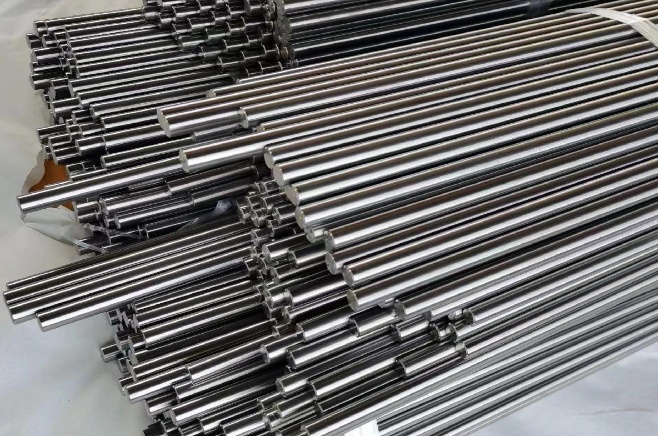Does titanium alloy rust?
Titanium alloys does not rust or corrode easily. Let's explain from the six aspects below.
1. Corrosion resistance of titanium alloys
One of the most remarkable properties of titanium alloys is their excellent corrosion resistance. When titanium is exposed to air, it rapidly forms a dense and stable oxide film (TiO2) on its surface. This oxide film is extremely tough and prevents further penetration of oxygen and moisture, thus protecting the titanium inside from corrosion. Titanium alloys also perform well in acidic and alkaline environments. It is highly resistant to a wide range of acids (e.g. nitric acid, sulphuric acid) and bases (e.g. sodium hydroxide). In addition, in seawater, titanium alloy is virtually impervious to corrosion, which makes it an important material for ocean engineering and marine equipment.
2. Basic Properties of Titanium Alloys
Titanium alloys are a class of alloys made by mixing titanium with other elements. They are known for their high strength, low density, corrosion resistance and biocompatibility. Common titanium alloys include Ti-6Al-4V (Titanium-6% Aluminium-4% Vanadium), which are widely used in aerospace, medical and industrial applications. Titanium alloys have a density of approximately 4.5 g/cm³, significantly lower than the 7.8 g/cm³ of steel, while their strength equals or exceeds that of some steel alloys.
3. Comparison of titanium alloy with other metals
Compared with steel, titanium alloy has obvious advantages in corrosion resistance. Ordinary carbon steel and stainless steel are prone to rust in humid environments, whereas titanium alloy is virtually immune to corrosion due to the presence of an oxide film on its surface. In addition, titanium alloys are more resistant to corrosion in acidic and alkaline environments than aluminium alloys. While aluminium alloys perform well in dry environments, they tend to corrode in acidic or salt spray environments.
4. Performance in practical applications
In the aerospace field, titanium alloys are widely used in structural components of aircraft and spacecraft because of their light weight, high strength and corrosion resistance. This not only reduces the weight of the vehicle, but also improves its durability and safety. In the medical field, titanium alloys are used in the manufacture of artificial joints, bone nails and other implants because they are non-toxic and non-hazardous to human tissue and are not easily corroded by body fluids. In addition, in chemical equipment and marine engineering, titanium alloys are widely used in the manufacture of reactors, heat exchangers and submarine pipelines because of their excellent corrosion resistance.
5. Protection and maintenance of titanium alloy
Although titanium alloy itself has strong corrosion resistance, but through the surface treatment technology can further enhance its protective properties. For example, anodising can form a thicker oxide layer on the surface of titanium alloys, improving their corrosion resistance and decorative properties. Electroplating adds a layer of protective metal to the surface of titanium alloys, further enhancing their durability. In addition, regular inspection and maintenance are also important measures to extend the service life of titanium alloy products. Through regular cleaning and inspection, potential problems can be identified and dealt with in a timely manner, ensuring the long-term reliability of titanium alloy products.
6. Future development trend
With the continuous progress of science and technology, the research and development of new types of highly corrosion-resistant titanium alloys is also advancing. By adjusting the alloy composition and improving the manufacturing process, titanium alloys with more corrosion resistance and mechanical properties can be developed. In addition, the application areas of titanium alloys are expanding. In addition to the traditional aerospace, medical and industrial fields, titanium alloys also show broad application prospects in the automotive, sports equipment, construction and other fields.
Overall, titanium alloys have become an important and indispensable material for modern industry and technology due to their excellent corrosion resistance, light weight and high strength, and biocompatibility. Although titanium alloys may corrode in certain extreme environments, their service life and reliability can be greatly improved through proper surface treatment and maintenance. In the future, with the continuous research and development of new titanium alloys and the expansion of application fields, titanium alloys will show their unique advantages and values in more fields.
